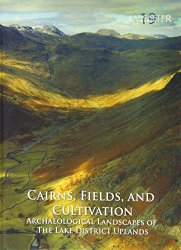$50.00
$36.13
(SAVE Now!)
as of 12/22/2024 (Details)
The uplands of the Lake District are famed for their rugged natural beauty, but the reality is that this landscape has been modified and changed by man since the mesolithic period. The remains for this exploitation, particularly from the Bronze Age onwards, survive in abundance across the marginal uplands, particularly in the form of cairnfields. These demonstrate how primary deforestation, creating small clearings in the wild wood, left to the development of complex settlements and field systems. The monuments also reveal the decline in the fortunes of upland settlement during the Iron Age and Roman period, and how people responded to changes in climatic conditions on these marginal lands. In addition to the evidence for agricultural exploitation of the uplands, considerable number of funerary and ritual monuments, as well as settlements, were recorded. This volume presents the results of a programme of detailed archaeological survey undertaken in the Lake District between 1982 and 1989, mainly on the fells above the west Cumbria coastal plain. It recorded some of the most remarkable cairnfields, field systems, and settlements in England, mostly of late prehistoric date. The project was funded by English Heritage, in conjunction was the Lake District National Park Authority, and was set up primarily to provide for the management of these landscapes, and to ensure their preservation in the future. The surveys have demonstrated that a series of nationally important archaeological landscapes survive on the marginal uplands of Cumbria, which form a palimpsest of many periods of activity, and provide a remarkable opportunity to understand the development of the land and its people.
Technical Details
No features available.